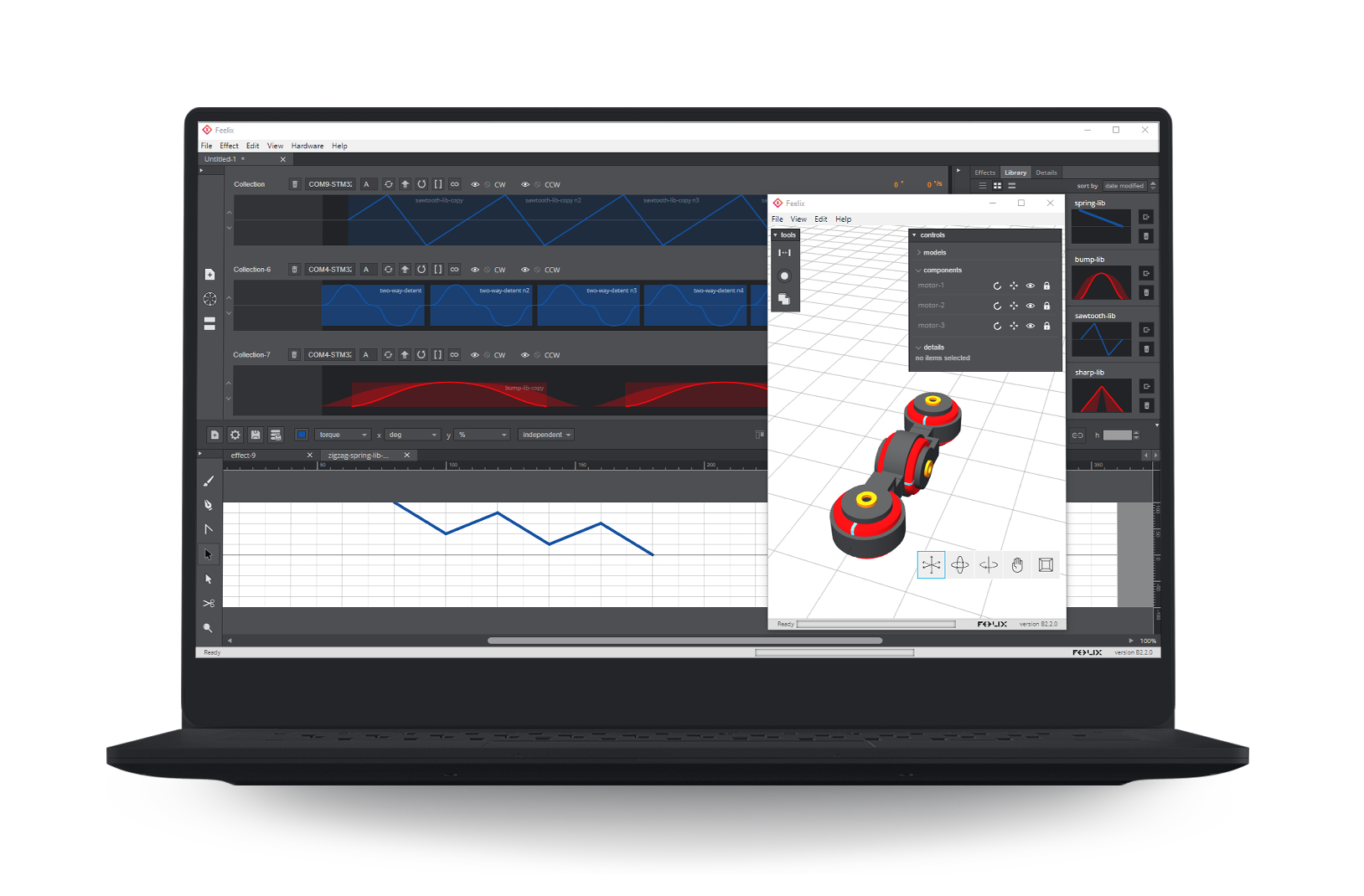TEI23 Studio
Designing for Haptic and Embodied Interaction with Feelix
Sunday February 26, Warsaw, Poland

Call for Participation
Force feedback and shape change introduce unique qualities in interaction design that can be favorable for the design of more intelligent physical user interfaces and robotics,
as communication revolves to a large extent around body language and gestures.
However, the toolset for haptic interaction design is limited, vibrotactile editors are available for mobile devices,
and a variety of tools have been introduced within research that enable the design of vibrotactile feedback for a wide range of applications.
Force feedback on the other hand is less common and the tools that exists are often oriented towards commercially available devices.
Feelix is a haptic authoring tool that was developed through an iterative design process with intermediate validations with students and researchers.
The tool was designed to make the use of force feedback more accessible for designers, whilst supporting the freedom to explore and integrate force feedback in a wide range of context.
In this studio we aim to explore the challenges and opportunities associated with force feedback and temporal form in custom user interfaces through hands-on explorations with Feelix.
We hope these explorations will lead to a fruitful discussion about haptic interaction design that could inspire directions for future research.
AUDIENCE
The studio can be attended by anyone who has an interest in haptics, regardless of their background or expertise.
The tutorial is accessible for novices and experts, experience with the haptic interaction design is not required.
Attendees should bring a Windows or MacOS laptop with a USB-socket to connect with the device. A computer mouse is optional but recommended.
Working in teams is possible in case attendees cannot bring a laptop.
organizers
Anke van Oosterhout - Postdoc at TU Eindhoven
Miguel Bruns - Associate Professor at TU Eindhoven
Eve Hoggan - Associate Professor at Aarhus University
Schedule
-
9.30
Introduction
Welcome, introduction to the studio and designing with Feelix
-
10.00
BREAK
-
10.30
Design iteration 1
To get acquainted with Feelix, participants each receive a hardware module to get started with designing feedback using Feelix.
-
12.00
Design iteration 2
Participants form groups and combine their hardware modules to create kinematic designs with more degrees of freedom and continue their explorations with feedback design as a group.
-
13.30
BREAK
-
15.00
Design iteration 3
In groups, participants will develop and train ML models for their kinematic design.
-
16.00
Reflective Discussion
All participants engage in a reflective discussion on explored methods and experiences. Participants can exchange experiences, best practices, ideas, and make contacts for potential collaborations.
-
16.30
Concluding studio
location
The studio takes place Sunday February 26 from 9.30 - 17.00 at the University of Warsaw in Poland. Visit TEI 2023 for more details.
